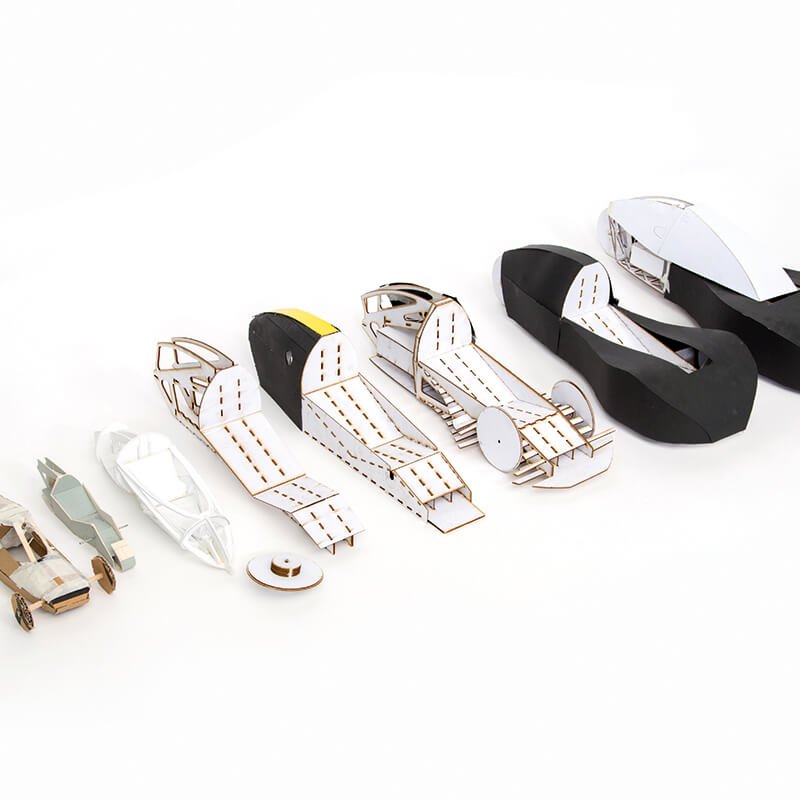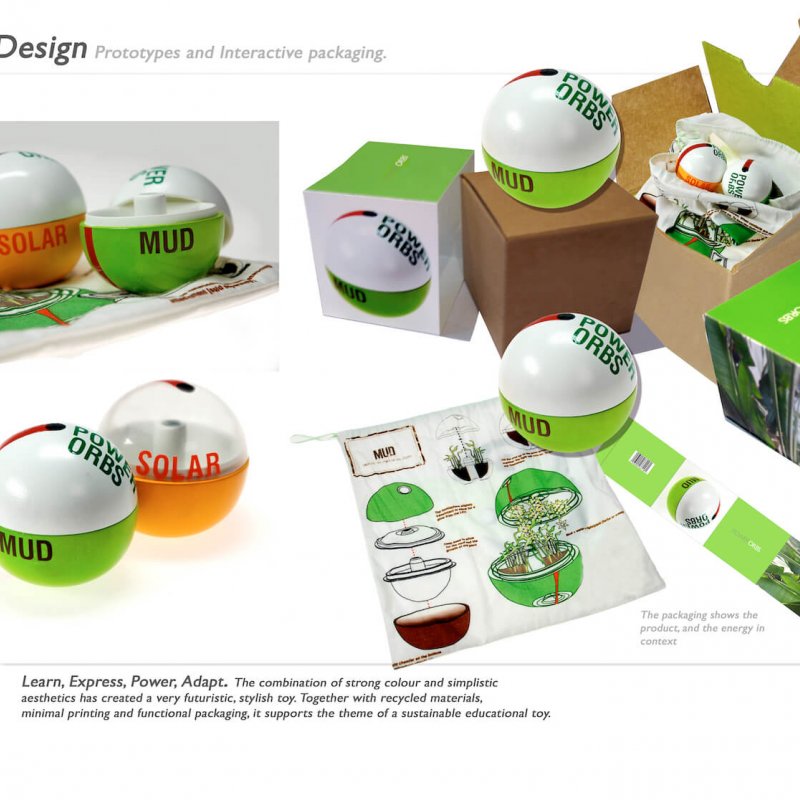
Sustainable Product Design BA(Hons)
Become a conscientious product designer equipped to make a real difference.
Course overview
The growing urgency around climate change and the importance of social justice underpinned by economic sustainability are prompting a radical design rethink, where product performance is measured not just by profit but by a positive effect on our environment and community.
This degree will equip you to make a real difference. You’ll learn human-centred design skills to develop inclusive and socially responsible products, exploring design strategies to reduce waste and use materials responsibly. To successfully pitch your ideas, you'll master confident communication skills through powerful visuals, prototypes and presentations.
You will:
- Develop digital product design and manufacturing skills with access to modern 3D printing and CNC technologies
- Get hands-on in the workshop to prototype your ideas through a broad range of materials and processes
- Design and create your own projects, either independently or with an industry partner
- Proactively build your network and develop career pathways, with opportunities to meet industry practitioners and take on live project briefs
- Tackle live industry briefs and team up with students from across the University on collaborative projects
Lead image: Sophie Bott.
Course details
On this Sustainable Product Design degree, you'll have the opportunity to gain a BA(Hons) degree over three years or study Sustainable Product Design BA(Hons) with a professional placement option.
Throughout this Sustainable Product Design degree, you’ll develop a detailed understanding of design theory, processes and practices, with a focus on human-centred design. You’ll learn to critically evaluate sustainable design approaches and develop hands-on and digital manufacturing skills. You’ll also acquire vital professional practice skills, including how to communicate your ideas (through CAD and visual communication), team-working and network-building.
From module information to course aims and assessment criteria, discover the full course details:

In your first year, you’ll develop creative and conceptual skills by exploring major global issues, the visual language of sustainable design and its critical and theoretical processes. You'll learn to professionally communicate your ideas through drawing, model-making and 3D computer-aided design (CAD). You’ll also discover the strategies designers use to develop sustainable products and begin to understand how to evaluate and defend sustainability claims.
Modules
Creativity & Communication
This module focuses on the creative methods designers use to inspire and develop design ideas. Through a series of creative exercises, you’ll develop specialist skills in design communication including sketching, graphical presentation of ideas, Adobe Photoshop and 3D CAD. Local field trips to the coast, gardens and woodlands will inform observational drawing and creative design thinking inspired by nature.
Sustainable Design Principles
You’ll investigate the materials, methods and tools product designers use to reduce the environmental impact of their design concepts. You’ll learn about sustainable design strategies and apply this to your design practice. There will be a particular focus on wood as a material. To support model-making and prototyping activities, you’ll learn how to use a range of basic wood workshop equipment.
Life Cycle Thinking
This module introduces a range of tools to assess the environmental impact of a product throughout its lifetime. The examination of existing products will underpin discussions relating to material selection, manufacturing processes, use and disposal. 3D CAD skills will focus on parts, assemblies, and manufacturing drawings. Adobe InDesign sessions will help you to present final outcomes of project work in a professional and coherent way.
Design Ethics
In this module, you’ll examine key global issues that are informing design debates for sustainable change. The connection between theory and practice is emphasised and explored through human-centred studio projects aimed at developing innovative design solutions. You’ll continue to develop your woodworking skills by prototyping design concepts in response to the module brief.
In your second year, you’ll study inclusive design and human-centred research before delving into collaborative projects with other courses and industry partners. You’ll also develop your CAD and digital manufacturing skills and debate the contexts, concepts and ethics of the industry. Focusing on the business of design, you’ll explore what’s involved in producing a product – from intellectual property to cost and profitability.
Modules
Design & Business
In this module, you’ll investigate re-design opportunities for existing products to reduce environmental impacts. While questioning the commercial viability of your concept, you’ll also consider social and environmental impacts. Business skills will focus on Intellectual Property and design protection. Throughout the module, you’ll work collaboratively using digital design and manufacturing tools.
Inclusive Design
This module introduces the principles of inclusive design and human-centred design strategies. You’ll learn primary research methods such as observation, shadowing, simulation and empathy. You'll also cover data collection techniques, recording and documenting research findings, as well as evaluation strategies.
Collaboration
Working as part of a team, you’ll work on ‘Challenge Briefs’ that reflect the sort of assignments you could expect to be working on in industry. Developing your ‘soft skills’, like communication, problem-solving, critical thinking and leadership, you’ll sharpen your ability to work well as part of a group to produce outstanding work.
Circular Economy
You’ll be challenged to respond to live projects with industry to support the design of innovative products or services that engage with the circular economy. Your design skills will be tested in real contexts through project partnerships and mentoring with external organisations.
You can choose to take an optional professional placement after your second year on a three-year programme, or after your third year if you’re studying for a degree with an Integrated Foundation Year.
You’ll be responsible for finding your own placement, with support from the Employability team.
Choosing this option will enhance your industry experience and skills while studying.
How you’ll study during your professional placement
You’ll spend time working in a professional context, as part of a business or organisation. This can be in one role, or up to three, and must be for a minimum of 24 weeks.
You’ll develop in-demand workplace skills, deepen your insight into industry and grow your network of contacts, all of which could help you get ahead in your career after graduation.
Throughout this year, you’ll develop a portfolio of work that includes critical self-reflection on what has been learned from the experience. You’ll be required to evidence your experiences, the skills you’ve learned and your professional growth.
You’ll explore current and original design opportunities, develop your ideas through tutorials and team discussions and turn your concepts into prototypes using skills like digital manufacturing. By delivering one-to-one and group presentations, you’ll focus on professional practices and management. There’ll be opportunities to gain real-world experience and make valuable connections by working with external project partners and meeting project partners and startups.
Modules
Design Drivers
You’ll establish the direction of your final year studio project by investigating the contextual and theoretical drivers that will underpin your design work. You’ll engage in secondary and primary research techniques to develop a strong rationale that drives your creative practice. This will be articulated through a written design report.
Design Visions
You’ll develop and articulate critical rationales and professional practice skills in preparation for your final year studio design practice modules. You’ll apply research in and to real-world contexts, providing insights that inform and guide the creation of a personal design brief and the creative process.
Design Ambitions
This module will create an opportunity to reflect on your skills and ambitions, helping you define a career pathway for life after university. It is about ‘career readiness’ as you transition from university to the workplace, self-employment, or postgraduate study.
Design Futures
The final module of the undergraduate programme will provide you with the time and support to develop resolved design outcomes to a professional standard through advanced prototypes and communication materials.
As part of our process of continuous improvement, we routinely review course content to ensure that all our students benefit from a high-quality and rewarding academic experience. As such, there may be some changes made to your course which are not immediately reflected in the content displayed on our website. Any students affected will be informed of any changes made directly.
Student work
See a selection of project work from our recent Sustainable Product Design BA(Hons) graduates.
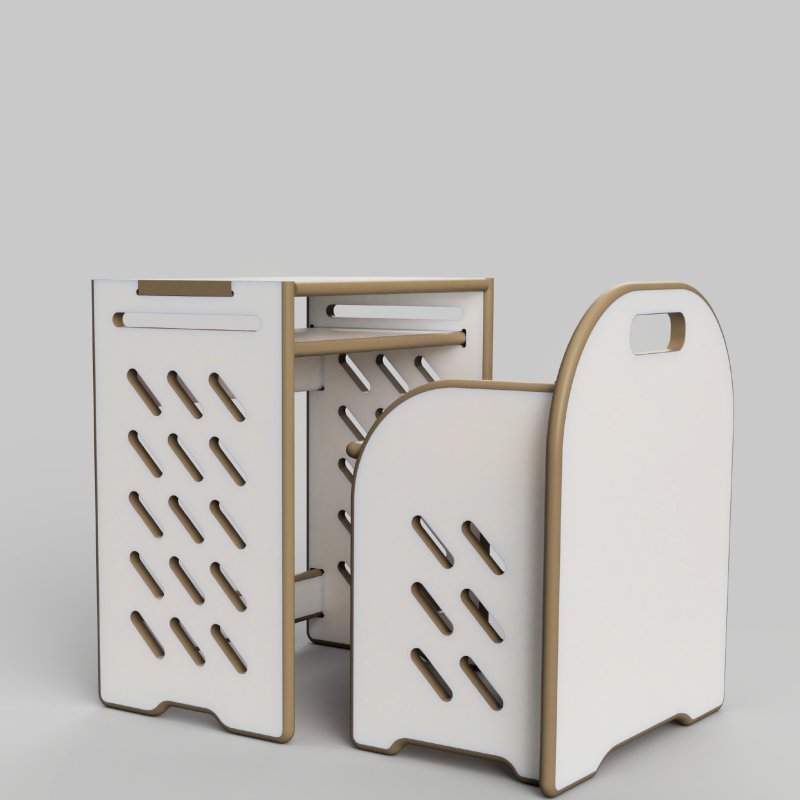
Designed by Arthuer Scaife

Designed by Florence Mitchell
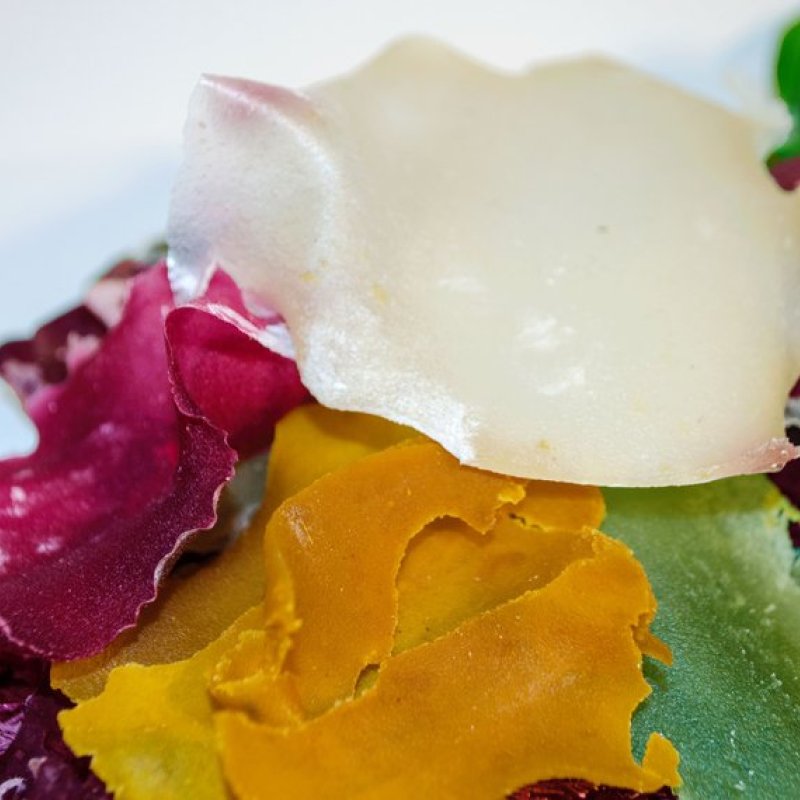
'Living in Falmouth, and Cornwall in general, there’s this sense of pride which brings about a desire to help the beautiful landscape and wildlife continue to thrive around us.'
- Libby Challoner, Sustainable Product Design graduate
Read Libby's storyHow you'll learn & be assessed
Sustainable Product Design students work in groups and individually to generate and apply innovative creative practices to understand how design is a powerful force which can create positive environmental, ethical and economic change.
The modules are designed to develop the skills and understanding you’ll need to become confident and professional designer. Sustainable design thinking is embedded in every module, so you’ll learn not only how to design but why some ideas and approaches have more meaning and value than others. This critical perspective is a key part of the learning journey and will underpin your transition into professional practice.
The course encourages a design studio culture where students work in partnership to develop and share their ideas using drawing, model making, and industry-standard Computer Aided Design (CAD) software. Hands-on making skills in both traditional workshop tools and digital prototyping technologies, including 3D printers, CNC mills and Laser cutters, are developed throughout the course.
- Lectures
- Seminars
- Academic workshops
- Practical workshops
- Tutorials
- Learning team meetings
- Field trips
At Falmouth, we use a 'digitally enhanced learning & teaching' approach. Your experience will always be predominantly in-person, including seminars, tutorials and studio teaching, with some, more targeted elements, being online either live (synchronous) or pre-recorded (asynchronous). You can read more here.
100% of your assessment will be coursework.
Assessment methods
Continuous assessment with no formal examinations
Facilities
Sustainable Product Design students will have access to professional facilities and equipment from the School of Architecture, Design & Interiors. This includes:
- High-spec workshops and studio space
- Rapid prototyping equipment
- CAD/CAM equipment including laser cutters, CNC milling and routing machines
- A range of digital printing capabilities, plus industry-standard 2D and 3D software
- Eco-material library and access to physical samples
- Subject specific library with multiple on-line resources
- Student support and academic support services
- IT - WiFi and open access IT suites across both campuses
- Online Learning Space with 24/365 access
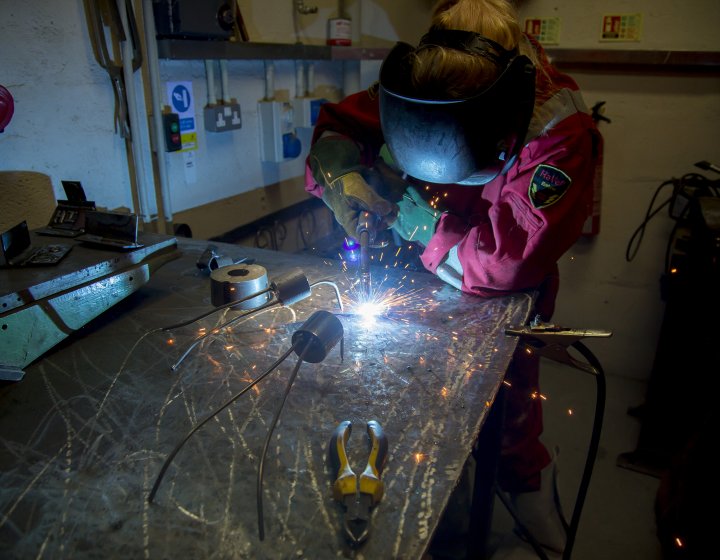
Art & Design Facilities
Primarily located at the Falmouth Campus in a subtropical garden, our studios and workshop facilitie...
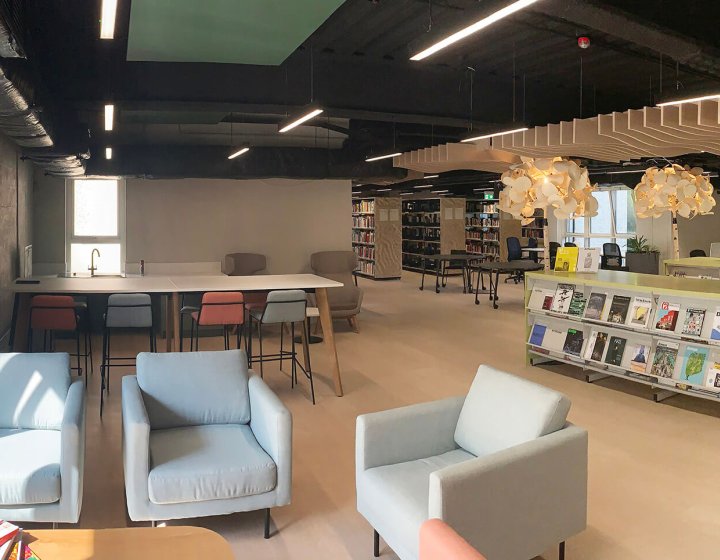
Library Facilities
Offering extensive collections, our two libraries provide a wealth of digital resources, magazines, ...

Sports Centre
Our Sports Centre, on Penryn Campus, includes a spacious gym with up to 90 of the latest, new statio...


Stories from our community
Explore student projects, graduate successes, staff news and industry insights

Falmouth University students to host 24-hour livestream for Cool Earth charity
06 December 2024
First-year students on Falmouth University’s Esports & Livestreaming course are teaming up with Co...

Sustainable Product Design student takes inspiration from Blue Earth Summit
18 November 2024
Driven by a desire to make a difference, Sustainable Product Design student Florence Pike-Quantick c...
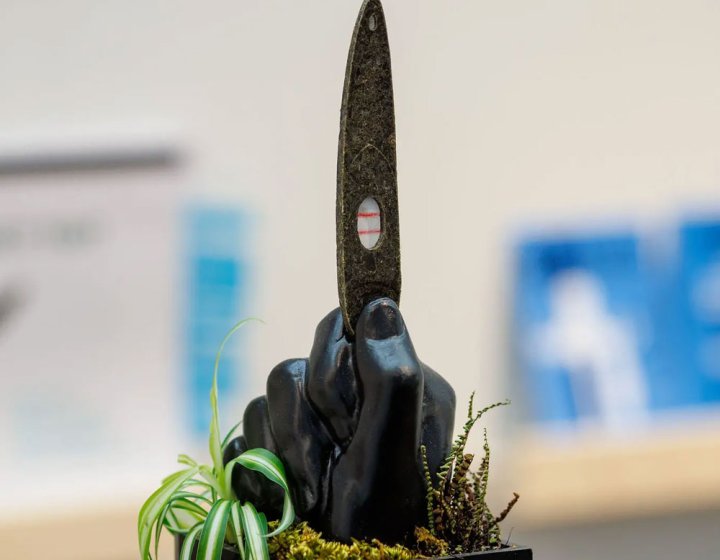
Product Design graduate Will Falch-Lovesey on his innovative seaweed-based pregnancy test kit
08 November 2024
Graduate Will Falch-Lovesey initially joined the Sustainable Product Design course at Falmouth with ...
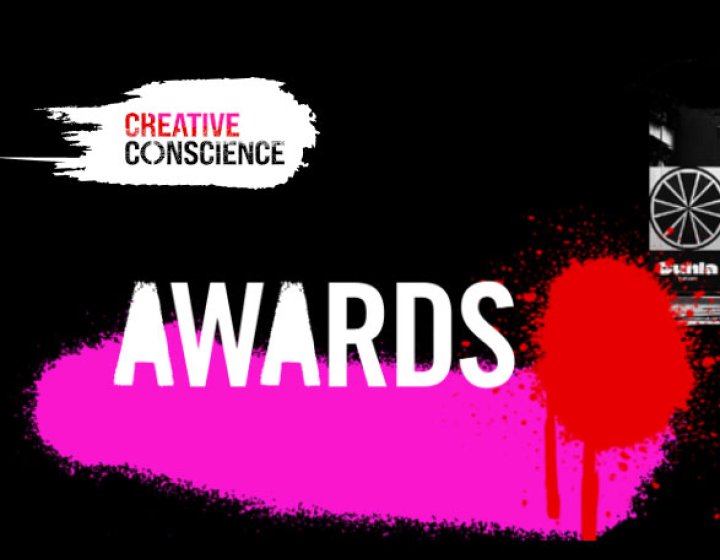
Students win four Creative Conscience awards
07 October 2024
Four student projects have scooped award wins in this year's Creative Conscience awards
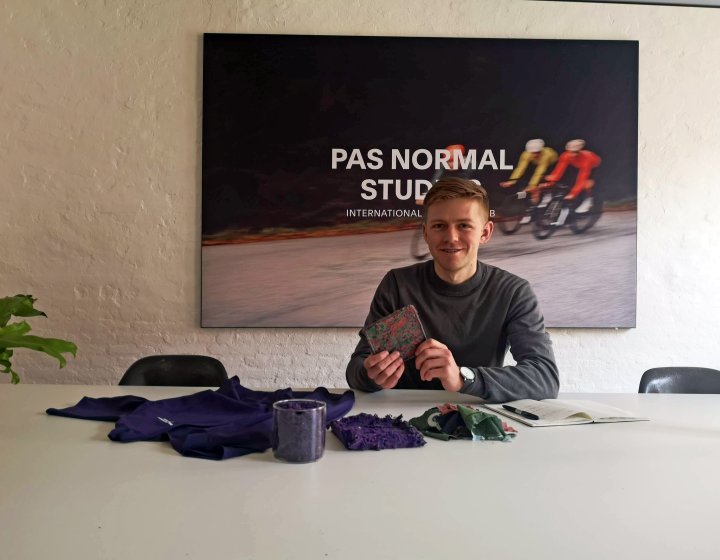
From Sustainable Product Design student to inspiring sustainability leader
22 July 2024
Charlie Clarke is a rising star in the world of sustainability. Since graduating from Falmouth’s S...
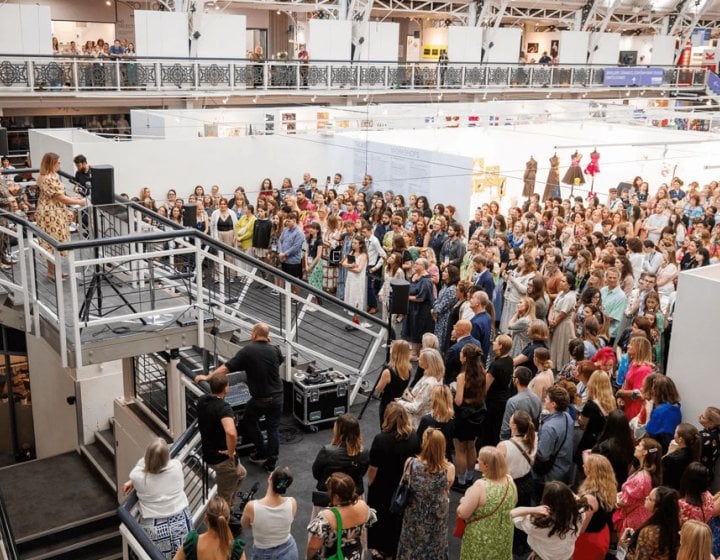
New Designer awards fruitful for five students
12 July 2024
The prestigious annual New Designers awards are judged by key industry leaders to find the rising s...
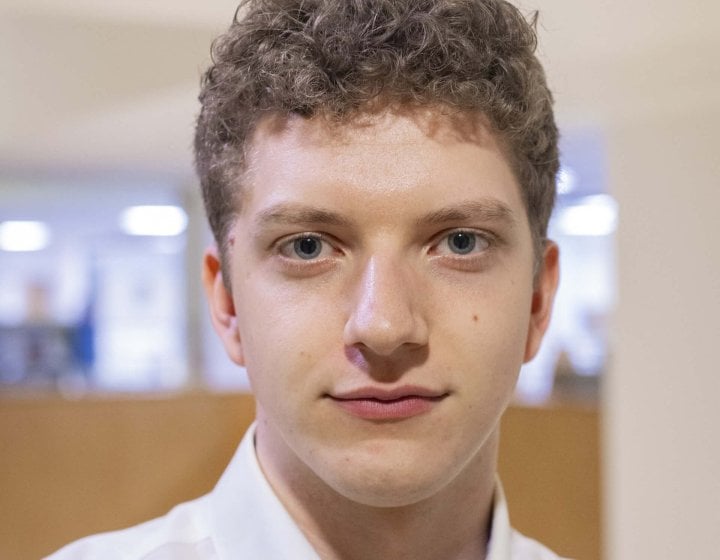
Sustainable Product Design student bags multiple industry awards
09 July 2024
Sustainable Product Design BA student Kit Rose has picked up two coveted awards at The Manufacturer ...

Sustainable Product Design student bags multiple industry awards
09 July 2024
Sustainable Product Design BA student Kit Rose has picked up two coveted awards at The Manufacturer ...

Sustainable Product Design student bags multiple industry awards
09 July 2024
Sustainable Product Design BA student Kit Rose has picked up two coveted awards at The Manufacturer ...
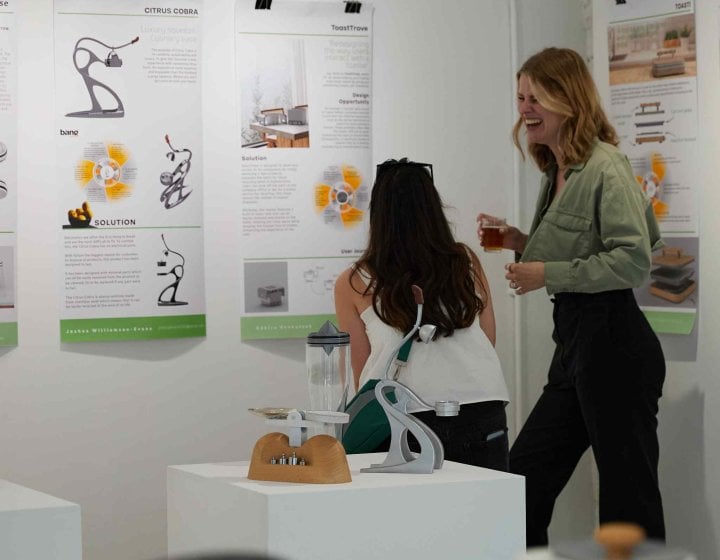
Bringing Right to Repair to Sustainable Product Design
31 May 2024
Earlier this month, second year Sustainable Product Design BA students had the opportunity to work o...
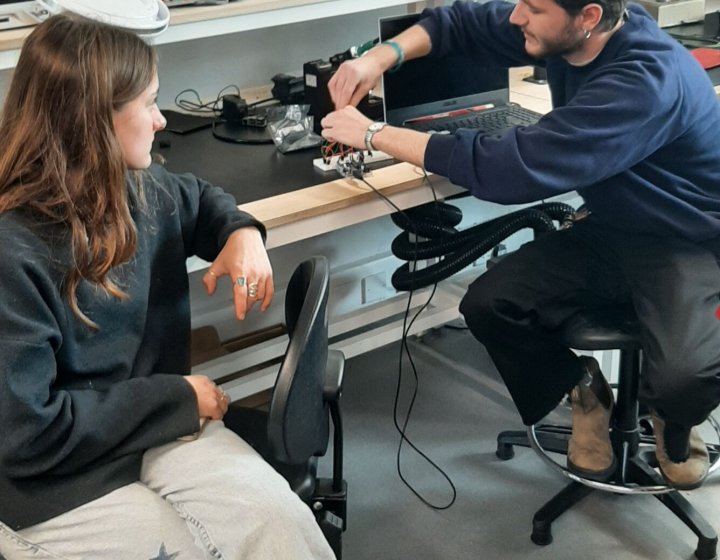
Vape Hackathon: Falmouth students collaborate on innovative answers to the disposable vape sustainability issue
02 May 2024
In April, students from our Sustainable Product Design BA and Robotics BSc courses came together for...
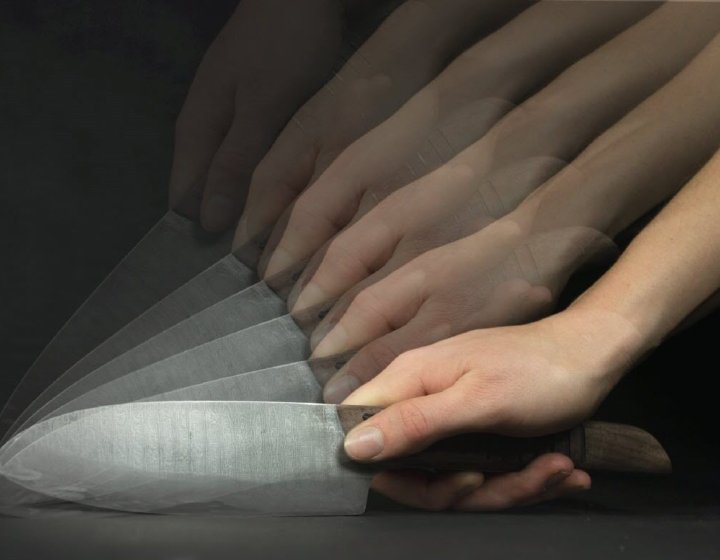
Falmouth students develop assistive kitchen products in collaboration with the Royal Cornwall Hospitals NHS Trust
05 April 2024
Sustainable Product Design BA(Hons) students working on the Inclusive Design module have developed a...
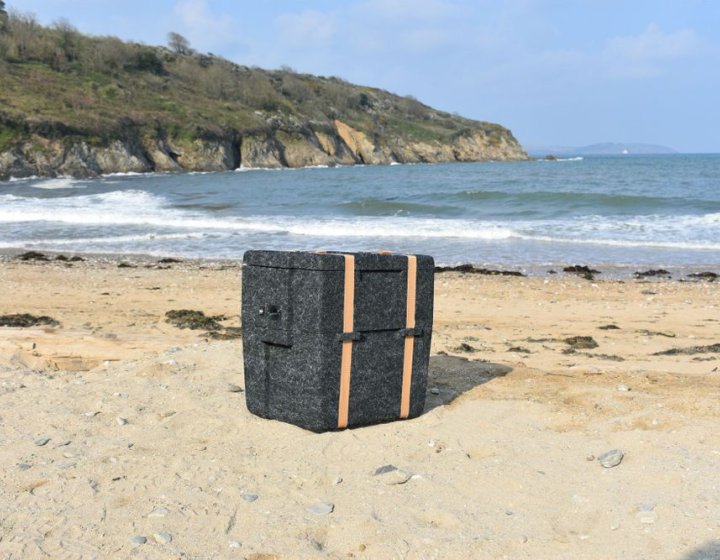
Falmouth University students and alumni win big at Creative Conscience Awards 2023
11 October 2023
The awards cement our reputation for championing ethical and sustainable practices.
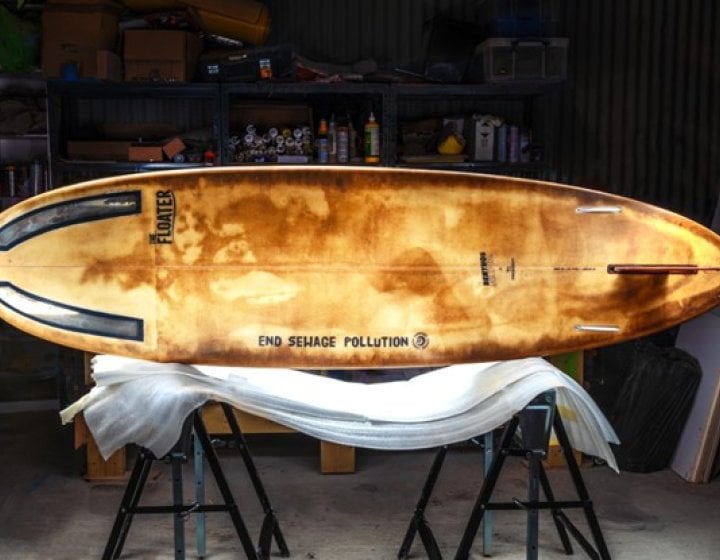
How a crap campaign helped Surfers Against Sewage tackle pollution profiteering
18 August 2023
Head of Advertising Dr Cui Su speaks to Creative Advertising graduate Jake Smith about his recent ca...
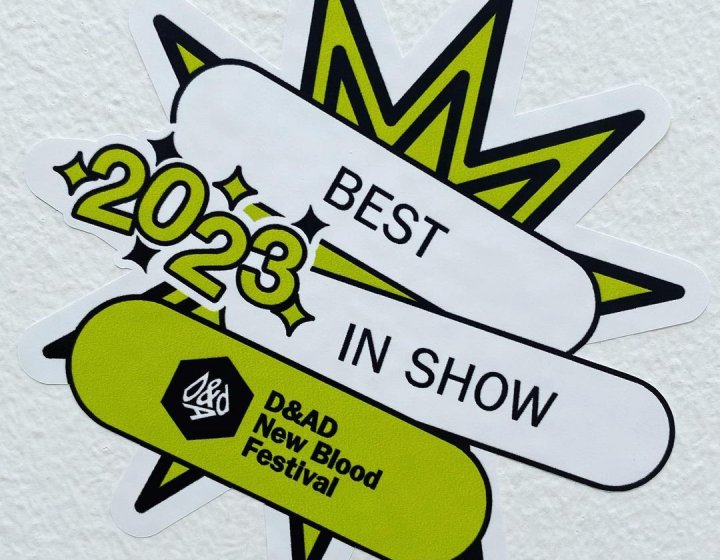
Falmouth University win big at D&AD Awards 2023
12 July 2023
Meet Falmouth's D&AD 2023 award winners and runner-ups
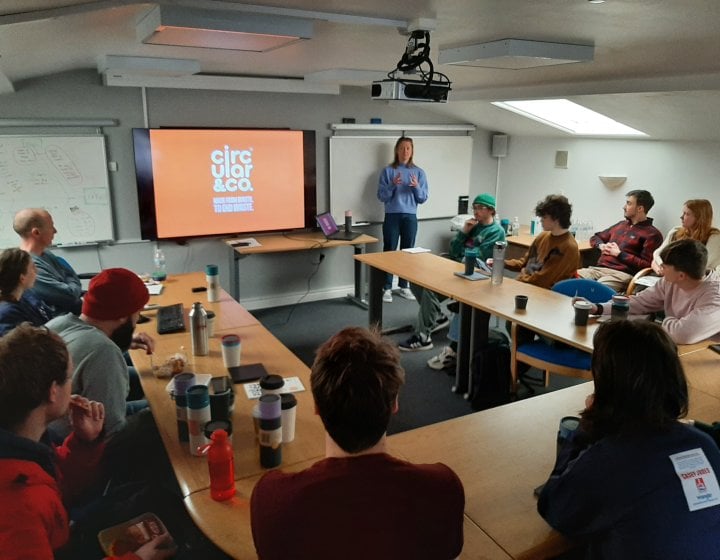
Sustainable Product Design students explore the potential of waste with design brand Circular&Co
13 April 2023
A number of our second-year Sustainable Product Design BA(Hons) students recently visited the factor...
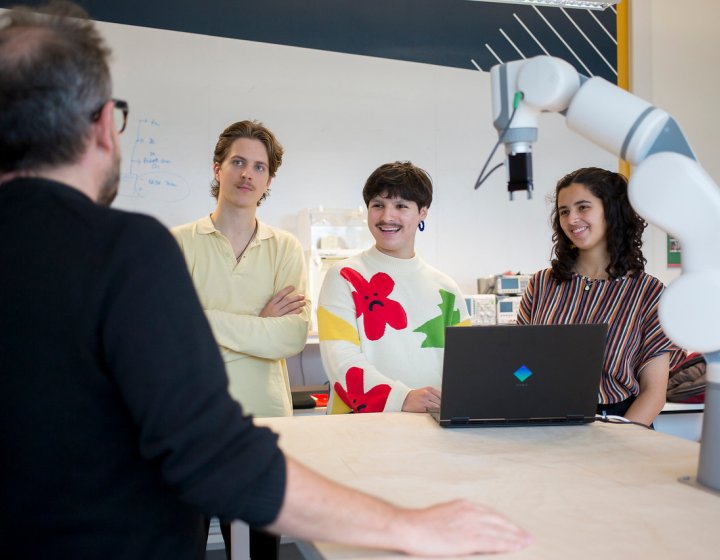
Students champion accessibility in Design the Change Competition
14 March 2023
As part of the Design the Change Competition, a team of Falmouth students are developing products to...

Sustainable Product Design student interns with Kinneir Dufort
05 January 2023
Liling Warwick shares her Kinneir Dufort internship experience.
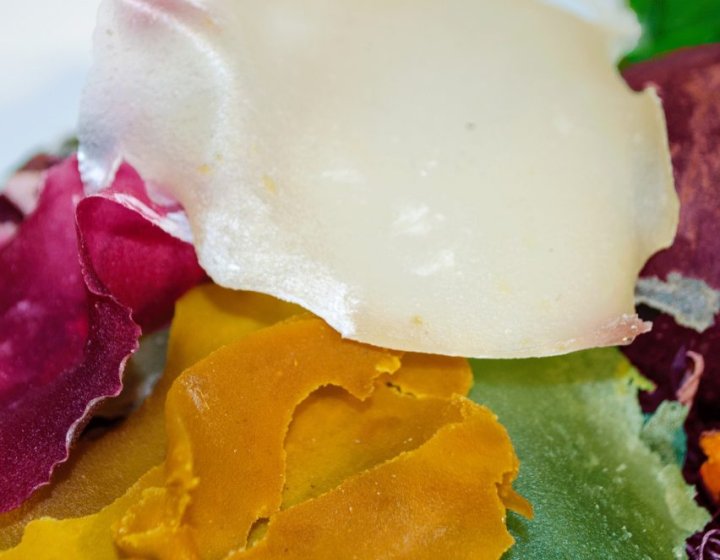
Falmouth graduate longlisted for Dezeen Design Awards 2022
23 September 2022
Sustainable Product Design graduate Libby Challoner has been longlisted for the Dezeen Design Awards...
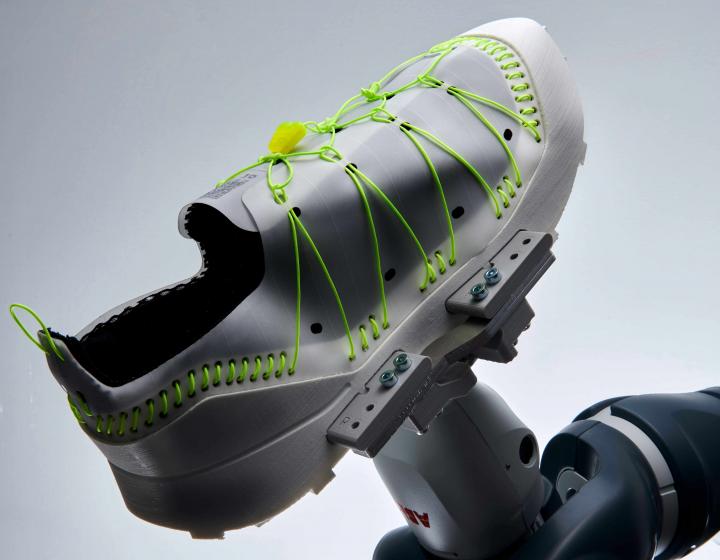
Innovative graduate creates robotically recycled footwear
09 December 2021
Sustainable Product Design BA(Hons) graduate Max Ashwell has created a pair of shoes that ...
Staff
You’ll learn from practicing designers, researchers, alumni and academics with extensive knowledge and experience in design and sustainability.

Drummond Masterton
Head of Architecture and Design
Drummond trained as a 3D designer, at Grays School of Art, Aberdeen and at postgraduate level at the...
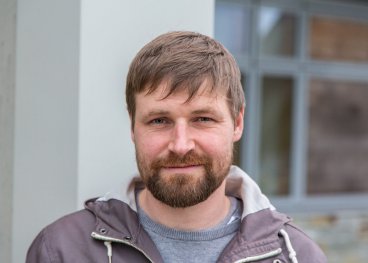
Dr Simon Andrews
Course Leader, Sustainable Product Design
Simon Andrews is Course Leader on the Sustainable Product Design programme at Falmouth University an...

Evy Dutheil
Senior Lecturer, Sustainable Product Design
Product designer educated in Ensaama, Paris and BIAD, Birmingham, over the last ten years évY has e...

Gary Allson
Lecturer, Sustainable Product Design
MA (RCA) Gary Allson trained as an industrial designer at the RCA in London. He worked for Raffo ...
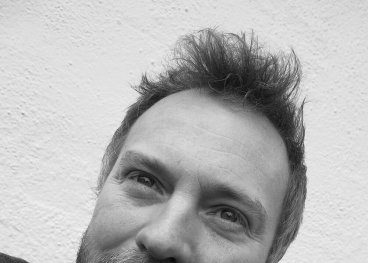
Clive Goodwin
Associate lecturer, Sustainable Product Design
Clive Goodwin has over 25 years of experience in the design business having worked with, and for, ma...
Some members of staff only teach on specific modules, and your course might not feature every staff member who teaches on the course.

Got a question about this course?
If you want to know more about the course structure, our application requirements or what our graduates have gone on to achieve, our friendly course team is here to help.
Chat to SimonCareers
Graduates could go on to work across a range of sectors in a variety of roles, including:
- Junior/senior designer in product design agencies
- Design researcher
- Product designer, including toys, lighting and furniture
- Sustainable consultants
- Sports products designer
- Healthcare product designer
- Independent designer/maker
- Service/UX designer
- Packaging designer
- Exhibition and shop fitting designer
- Community focused co-design and social enterprises
- 2D & 3D visualisation and rendering services

Work by Herbert Hodson
An Art or Design degree is an opportunity to channel your creative flair by exploring a range of media techniques to refine your practice.
How to apply
Ready to apply for 2025?
You can apply for our undergraduate degrees via UCAS. You'll need our university UCAS code (F33) as well as your course code (which you'll find on your course page) for your application.
| Course route | UCAS code |
|---|---|
| Sustainable Product Design BA(Hons) three year degree | W250 |
| Sustainable Product Design BA(Hons) with professional placement | PY43 |

Application advice & interview information
Go to ToolkitFor starting your studies in 2025
UK applications: 29 January 2025 (for equal consideration)
Applications after the 29 January will be considered on a first-come, first-served as long as there are places available. Apply for this course now.
International fee payers
International fee payers can apply throughout the year. But we recommend applying as early as possible, to make time for visa and travel arrangements.
We consider all applications on their own individual merit and potential. We invite all applicants to an interview day or audition to give them the opportunity to demonstrate this along with what inspires and motivates them in their field. Applicants will also be able to show their portfolio or give a performance depending on the course. We welcome applications from all subject backgrounds, whether you’ve specialised in STEM, the arts or humanities.
Course routes & entry requirements
BA/BSc(Hons) three year degree: 104 – 120 UCAS Tariff points
BA/BSc(Hons) four year degree with professional placement: 104 – 120 UCAS Tariff points
Check the title of your course to see if it's a BA or BSc award. UCAS Tariff points will primarily be from Level 3 qualifications such as but not limited to A-levels, T Levels, a BTEC/UAL Extended Diploma or a Foundation Diploma.
For applicants whose first language is English we require you to have or be working towards GCSE English Language Grade 4 (C), or equivalent.
If English is not your first language you will need to meet the same standard which is equivalent to the IELTS Academic 6.0 overall score, with at least 5.5 in Reading, Writing, Speaking and Listening. We accept a range of in country equivalencies and approved tests.
If you need a student visa to study in the UK, you may need to take a recognised language test. You can read our English Language Requirements for more information.
We want someone who:
- Understands drawing/mark-making, including composition, colour, form, graphical presentation, creative exploration and development.
- Knows about 3D/product design practitioners or other artists and designers, and can relate this knowledge to their own work.
- Understands the design process, including concept development, investigation into materials and production methods, and technical skills.
- Has research and analytical skills.
- Shows commitment and enthusiasm for the subject, as well as motivation, communication skills and creative thinking.
Fees, costs & funding
Tuition fees
| Annual tuition fee | Student |
|---|---|
| £9,535 per year | Full-time UK |
| £17,950 per year | Full-time EU/international |
| £1,905 per professional placement year | Full-time UK and EU/international |
| Annual tuition fee | Student |
|---|---|
| £9,250 per year | Full-time UK |
| £17,950 per year | Full-time EU/international |
| £1,850 per professional placement year | Full-time UK and EU/international |
Tuition fees for September 2026 will be confirmed in summer 2025.
Tuition fees are set annually and are subject to review each year. The University may therefore raise tuition fees in the second or subsequent years of a course, in line with inflation and/or the maximum permitted by law or Government policy. Students will be notified of any changes as soon as possible.
The figures above don't include accommodation and living costs
Typical course costs
Recurring annual costs
£50-100 – Materials, including drawing and model making equipment, and workshop materials for prototyping.
Optional study trips
£600 – Study trips (European study trips are normally for 4/5 days during study block 2 (subject to travel restrictions) and cost approximately £600. We would take a deposit of £400 in study block 1 to confirm places on the trip.)
One-off costs for the duration of the course
- £40 - Recommended reading
- Safety glasses - Honeywell A800 Safety Glasses Anti-Mist, clear or similar EN166-1F Polycarbonate Anti-Scratch safety glasses, approximately £4.67
- Face mask - 3M 4255 Half Mask Respirator, approximately £32
- Ear Defenders - RS Components RS Pro, 28dB Ear Defender and Headband or similar ANSI S3.19 NRR, CE, EN 352-1 ear defenders, approximately £6.44
- 5 metre metal tape measure, approximately £5
- Retractable Stanley knife and blades, approximately £6
- A6 notebook and A3 sketchbooks, approximately £15
- A3 layout pads and tracing paper, approximately £6
- 12” safety steel ruler, approximately £3
- A3 cutting mat, approximately £9
- Swann-Morton safety scalpel and 10A blades(4packs), approximately £7.50
- Graphite and colour pencils, fineliner pens (0.3 mm, 0.5 mm, 0.7mm), Letraset Tria markers (Tonal range of 3), approximately £28
- 3M masking tape (25mm), approximately £1.60
A laptop is essential. We recommend budgeting around £1,000 - £1,500 for a minimum specification as follows:
PC Laptop, Windows 10 64bit or Apple MacBook PRO (16inch) with dual boot Windows installed.
- Operating System: Windows or Apple MacBook PRO (with dual boot Windows installed)
- Processor: Intel: 11th/12th gen Core i5, i7 or i9, or AMD: Ryzen 5,7 or 9 series
- RAM: 8GB Minimum, 16GB or higher recommended
- Graphics: Dedicated graphics cards with 2GB RAM. (either Nvidia RTX or AMD Radeon)
- Storage: 250GB - 1TB+ storage capacity
- Screen size: 13” or larger
- We also recommend having laptop case/bag to carry and protect your laptop (approximately £15).
Please also note Chromebooks, iPads, MacBook Airs and tablets are not suitable hardware for CAD design software but can be used for note taking and digital sketching.
Software:
- Office 365, free through the University.
- Adobe Creative Cloud
- Autodesk Product Design Suite, including Fusion360 and Inventor, are provided free through educational license agreement using your Falmouth email.
Optional:
- A wireless or Bluetooth, 3-button computer mouse – approx. £15
- 128GB SD card for image storage– approx. £25
If you have any questions about purchasing equipment before starting contact our Course Advisors.
If you need to bring equipment or materials with you, these will be outlined in your Welcome Letter.
Funding
For information about funding available, please visit our student funding pages.
Ask a student
What better way to find out about life at Falmouth University than by asking our current students?
From course details and academic support, to the social scene and settling in, our students are ready and available to answer any questions you might have. Simply set up your account, send them a question and they'll get back to you within 24 hours.
Similar courses
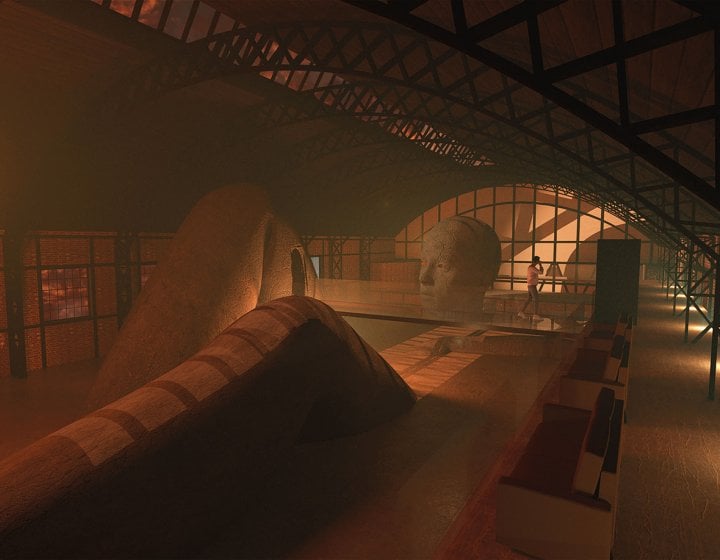
Interior Architecture BA(Hons)
Uncover the impact and potential of the spaces in which we work, rest and play, on this future-focus...
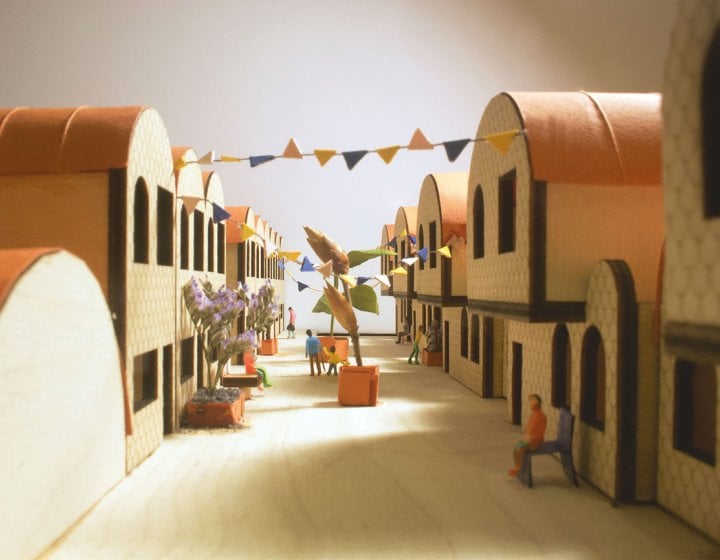
Architecture BA(Hons)
Learn through making on this RIBA and ARB accredited course. Working on live briefs in a studio envi...
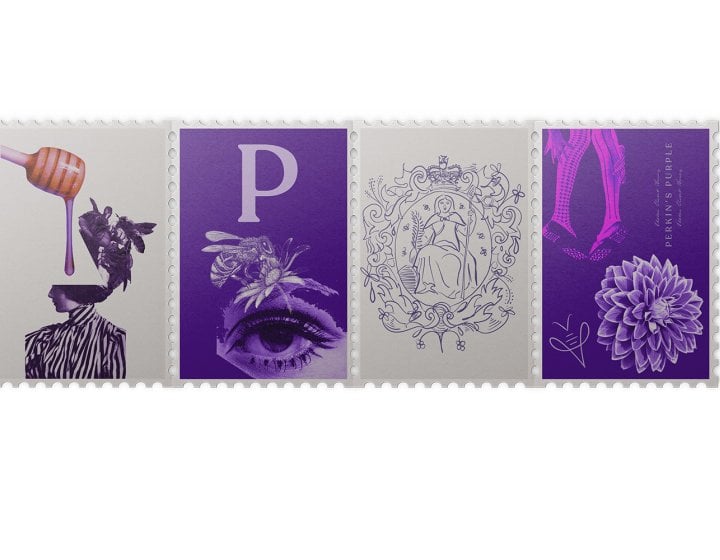
Graphic Design BA(Hons)
Graphic Design is one of the most versatile visual disciplines, embracing words and pictures, form a...
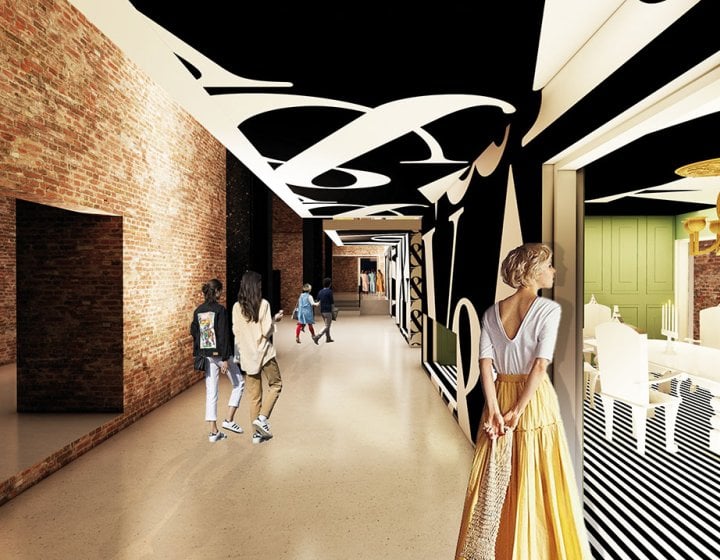
Interior Design BA(Hons)
Delve into the world of built spaces, interior environments and the people who inhabit them. Through...

Textile Design BA(Hons)
On our textile design degree, you’ll be part of a vibrant, supportive community of multidisciplina...
Open Days and events
From visiting campus to online application advice, get all the information you need about joining our creative community.
Find an event

